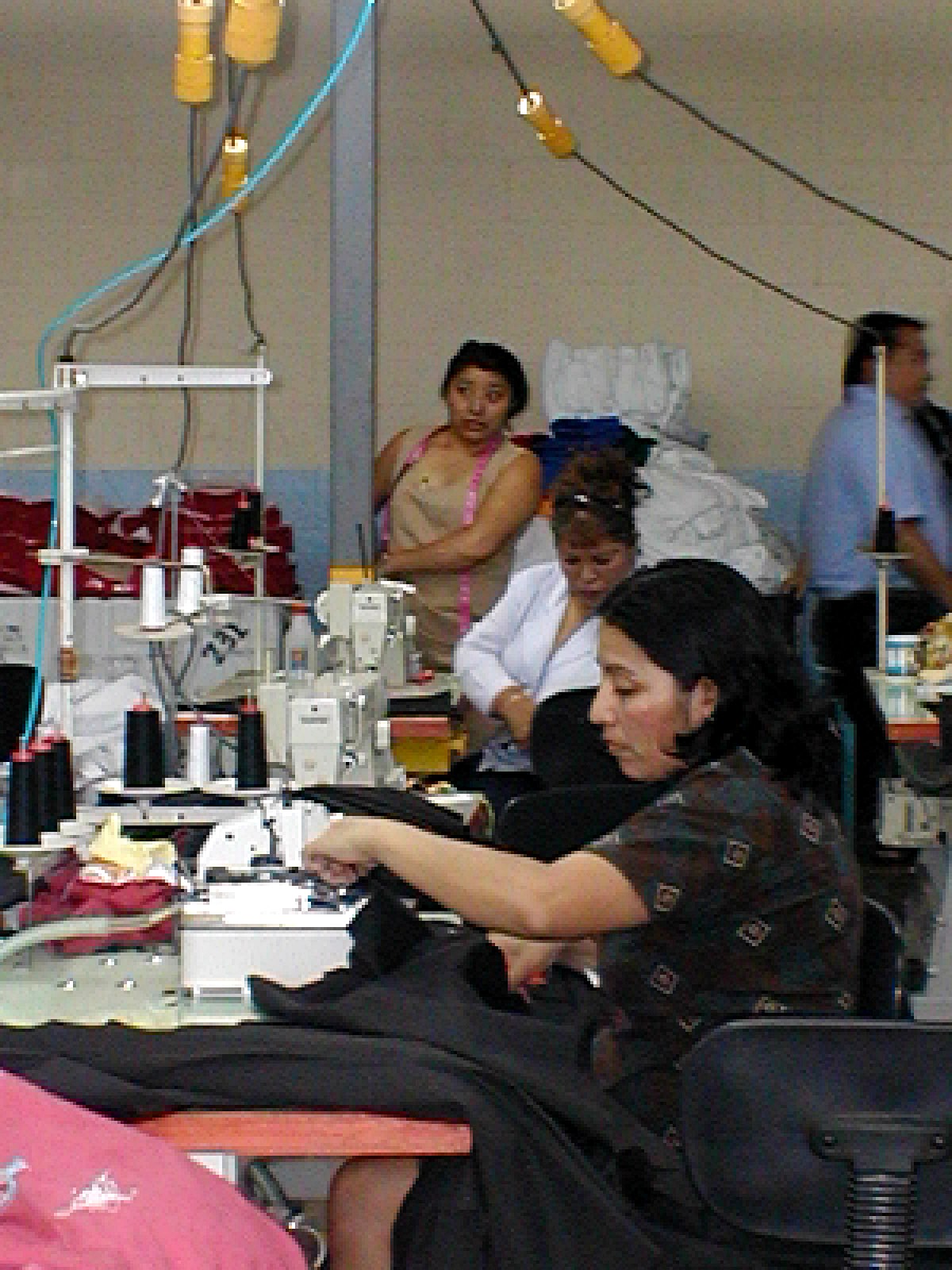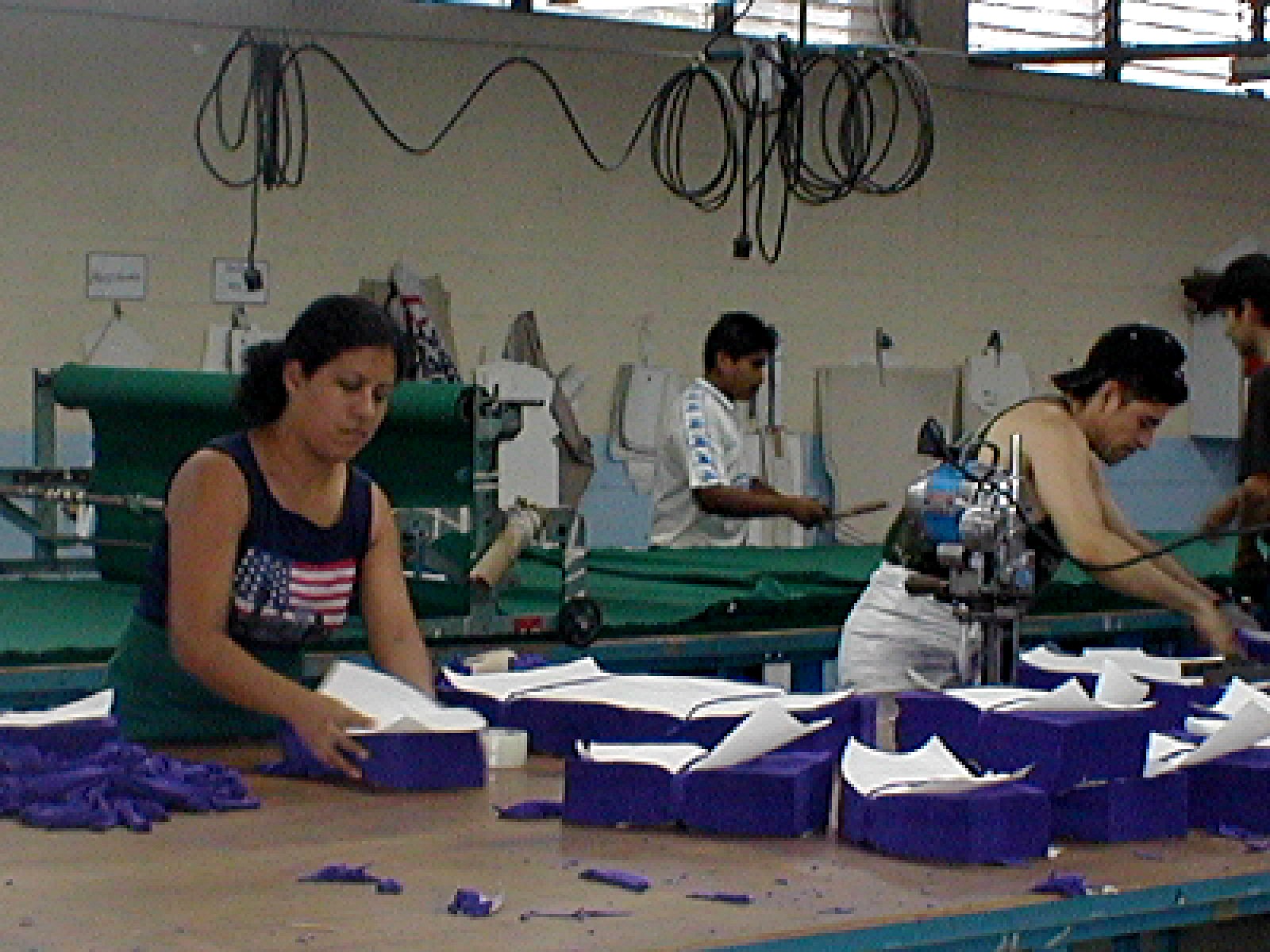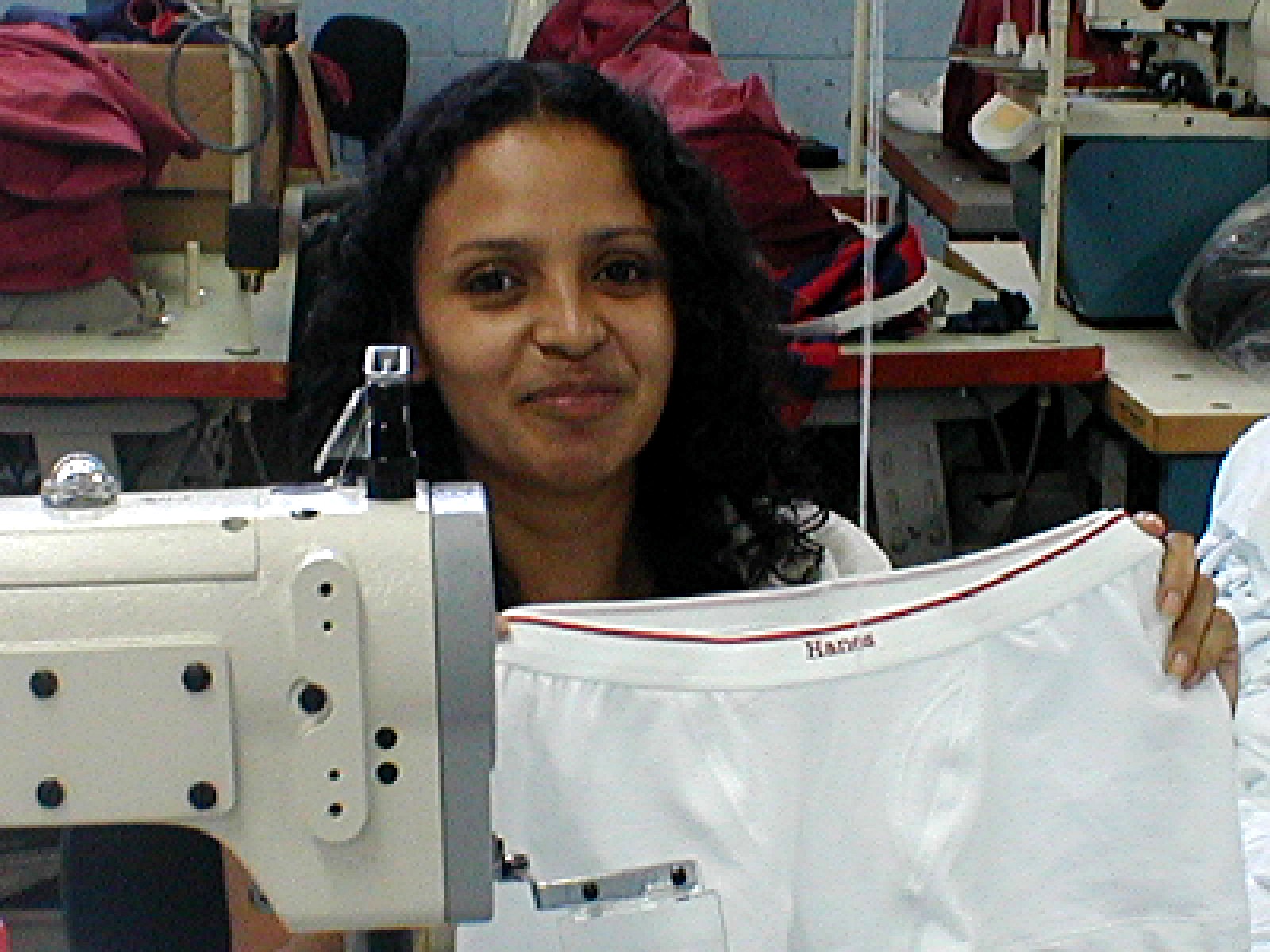The news that the union organizers at Just Garments hear from neighboring clothing assembly plants has a déjà vu quality to it. One nearby factory just laid off 900 workers, half its force. The news is even worse at two other clothing assembly plants, which are both moving to Asia, leaving 2,200 workers high and dry. This is familiar news in manufacturing towns across the United States. But Just Garments is in San Salvador, and the same economic forces that are draining manufacturing jobs in the U.S. are at work in El Salvador. Free trade allows jobs to run downhill to the lowest wage point, and that point could be anywhere in the world where labor is valued least. Right now, El Salvador’s jobs are flowing to China and Vietnam, just as is happening in the United States. And just as is happening in the United States, unions are shrinking, as workers accept lower and lower wages, trying to compete with an endless supply of cheap labor elsewhere in the world.
Just Garments is trying to swim against the tide. They are the only unionized shop among the thirty maquilas that operate in this part of San Salvador, and they are working to become the only worker-owned factory in the country. Right now, they own about 52% of their company, while the original Taiwanese owner retains the rest. While the pay here is only slightly better here than in the surrounding factories, it’s still a barrier to growth; right now, the factory only employs sixty workers, running at about 20% capacity. When they get work assembling garments for large
corporations, like Hanes (above right), it’s overflow inherited from a neighboring maquila. International companies can always find someone else who will work for less. While El Salvador has a minimum wage, it’s lower in rural areas than in San Salvador. And if the Central American Free Trade Agreement ever goes into force, one of its provisions is that labor laws that are deemed to stand in the way of trade can be overturned by foreign companies.



